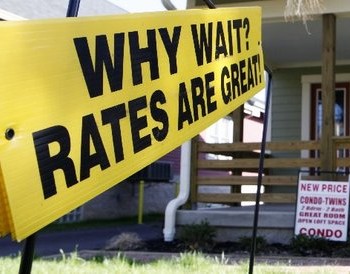 If you are thinking about downsizing your home at some point during retirement, chances are you are not alone. Today, more and more Americans are considering this move. As children move out and begin their lives, many retirees and pre-retirees begin to see that they have more house than they need. More importantly, they may also have more expenses than they need. From elevated real estate taxes to higher utility and maintenance costs, many Americans look at downsizing as a way to reduce costs and improve their retirement. While this seems like a logical plan, downsizing is not right for everyone. There are many factors to consider and proper planning may improve your chances of executing this game plan successfully.
If you are thinking about downsizing your home at some point during retirement, chances are you are not alone. Today, more and more Americans are considering this move. As children move out and begin their lives, many retirees and pre-retirees begin to see that they have more house than they need. More importantly, they may also have more expenses than they need. From elevated real estate taxes to higher utility and maintenance costs, many Americans look at downsizing as a way to reduce costs and improve their retirement. While this seems like a logical plan, downsizing is not right for everyone. There are many factors to consider and proper planning may improve your chances of executing this game plan successfully.
Downsize your costs
While there may be many reasons to consider downsizing your home, a reduction in expenses is usually the top of the list. In fact, according to the Demand Institute Housing & Community Survey, of boomers that are planning to move in retirement, nearly 52% are looking to reduce the amount they spend on housing. For many retirees, housing expenses can make up a sizable portion of their budget. Trading in a larger, more expensive home for something smaller may be a great way to reduce costs – especially if you can use the equity proceeds to eliminate the need for a mortgage on your next purchase. Remember, carrying a large mortgage with you into retirement should be avoided if possible.
In addition to eliminating the need for a mortgage, purchasing a smaller, less expensive home can be beneficial in other ways too. Downsizing proceeds may also allow you to pay down other debts, replenish cash reserves or even provide a much needed boost to your retirement savings.
In many cases, purchasing a less expensive home may also result in lower real estate taxes and overall maintenance costs, freeing up discretionary cash flow that can be applied to other more important goals. For example, would you rather pay elevated property taxes in retirement or have additional funds for travel? The fact is many retirees spend a disproportionately large percentage of income on housing that may be used to support their lifestyle in other ways. A willingness to relocate to a less expensive state with a lower cost of living could also be helpful.
Downsize your stress
Not only do many retirees consider downsizing as a way to reduce expenses, it can also be an effective way to reduce stress. Many boomers are looking to eliminate the time commitment of maintaining a larger home than they need. A smaller home may require less maintenance, translating into more time to do what means most to you. Additionally, the turn-key services offered by active-adult communities can certainly help but be careful – they do come at a cost.
Downsizing mistakes
While a reduction in housing costs may be helpful, there are a few common mistakes to avoid. First, reducing the size of your next home does not always result in downsized expenses. Be sure to carefully complete a pre and post downsize budget to quantify the differential in expenses. Remember to factor in realtor fees, moving costs, association fees, real estate taxes, renovation costs of the new home and utilities. Also be aware of capital gains taxes. Remember, couples can exclude the first $500,000 of gains on the sale of their primary residence. If you earned more than $500,000 on the sale, you may be subject to capital gains taxes. Also, don’t forget to factor in the 2% exit tax if you are considering leaving the state of NJ too. Be sure to calculate your net proceeds when considering your plan.
It is also important to avoid the double downsize – or making more than one major change. Why might this happen? Too often, retirees and pre-retirees end up making a less significant downsize initially and realize later that they need to reduce their expenses further. Remember, it is important that you are on a sustainable path for the long-term and a small downsize may not be worth the effort. The downsize should be meaningful enough that it places your family in a more stable financial position, enabling you to worry less and enjoy life more. It may be better to downsize once and do it right.
While reducing expenses may improve the quality of retirement, it may not be the most important factor. Whether it be proximity to family or a warmer climate, there are many personal factors that should be considered before pursuing a downsize. Carefully estimating your budget before and after the potential downsize can help provide clarity on how significant (or insignificant) the savings may actually be while keeping you on a sustainable path for your retirement. Since everyone’s situation is unique, consider speaking to your financial adviser to determine whether a downsize may be a good fit for your situation.
Kurt J. Rossi, MBA, CFP®, CRPC®, AIF® is a CERTIFIED FINANCIAL PLANNERtm Practitioner & Wealth Advisor. He can be reached for questions at 732-280-7550, kurt.rossi@Independentwm.com, www.bringyourfinancestolife.com & www.Independentwm.com. LPL Financial Member FINRA/SIPC.









